13 reasons why AC/DC rock for guitarists
We tip our headstock to the Aussie rock overlords
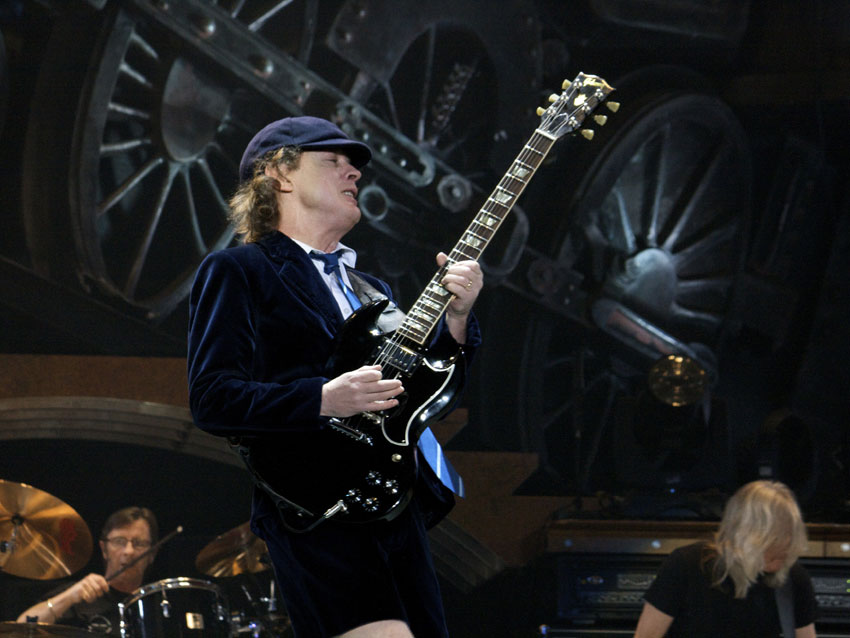
13 reasons why AC/DC rock for guitarists
GUITARS AND AMPS EXPO 2014: Back In Black. Highway To Hell. Whole Lotta Rosie. When it comes to iconic AC/DC riffs, those are just the tip of the iceberg. Across five decades, the band has put out 15 studio albums packed with solid riffs, as well as releasing a clutch of electrifying live records.
There have been two constants in powering the band right from the off: guitarists Angus and Malcolm Young. The Young brothers rock, plain and simple, but just in case you're mad enough to need persuading, here are 13 reasons why AC/DC rock for guitarists... For those about to rock, we salute you!
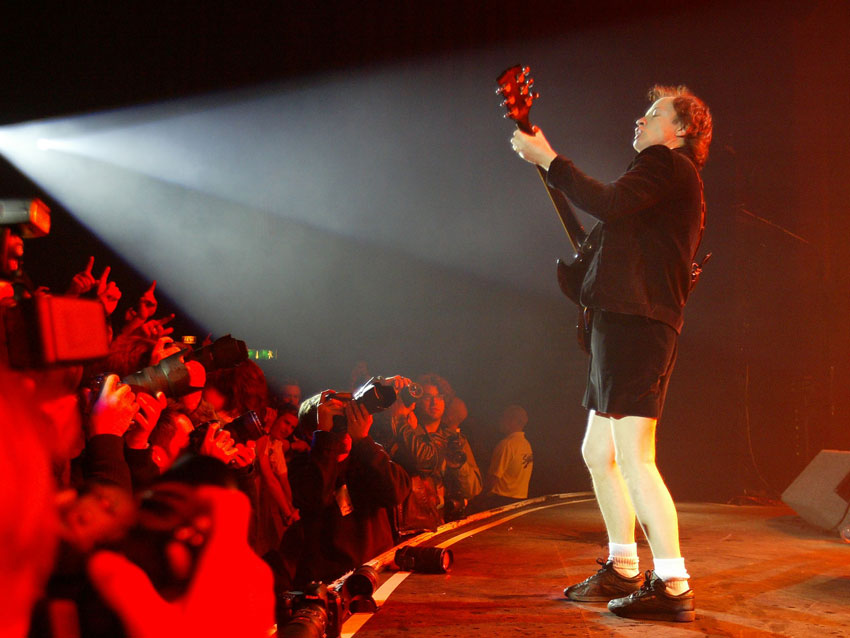
Back In Black is the ultimate classic rock riff
Head to your local band rehearsal studio and you’ll probably hear one or two guitarists taking a stab at Smoke On The Water. More courageous types will try their hand at Stairway To Heaven, but just about every guitarist will relish busting out that iconic opening riff to Back In Black.
The most classic of classic rock riffs, Back In Black is sharp-shooting, ballsy, and utterly full of itself. 30 years on from its inception, it still defines the world's biggest hard rock band. Now that's a sign of a seriously good riff.
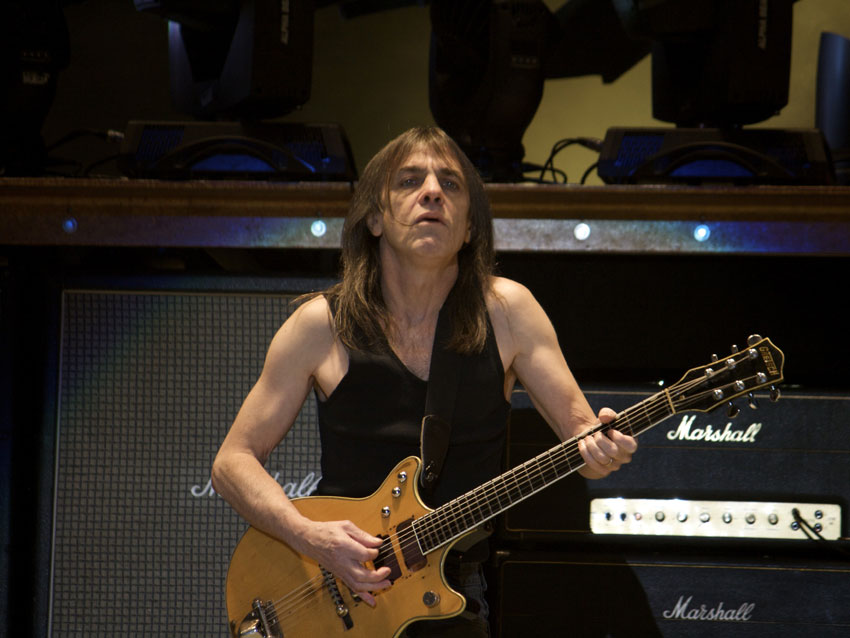
They have one of the best rhythm guitarists in town
Angus may nab the spotlight more often, but older brother Malcolm is the undoubted boss of the band and also one of the finest rhythm guitarists known to music. Angus is able to tear around the stage like an oxygen-hoofing maniac because his older bro (along with bassist Cliff Williams and metronomic drummer Phil Rudd) is laying down a thick grove from the shadows.
News that Malcolm is stepping away from the band due to ill-health recently rocked the music world, and we’re holding out for his full and speedy recovery.
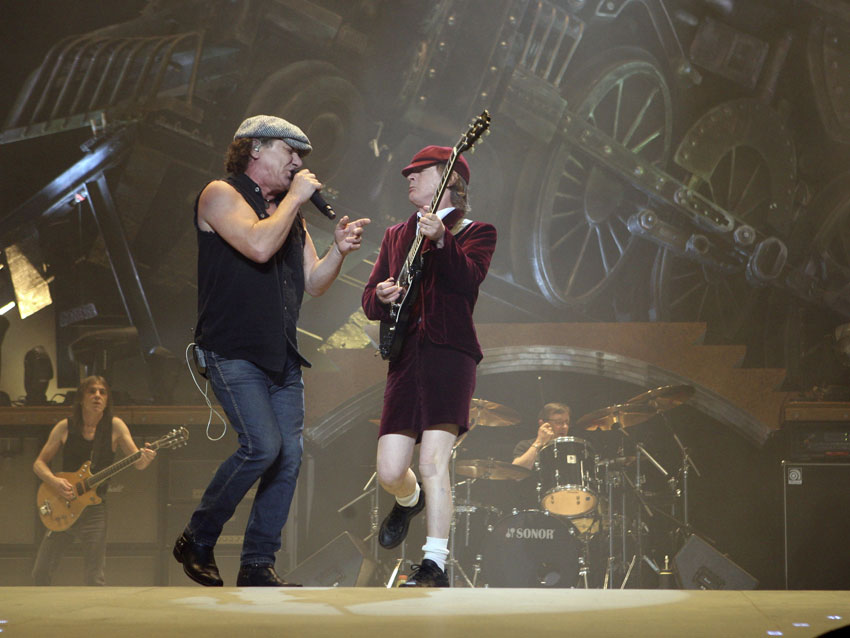
They're survivors
Not many bands could come back from the death of their lead singer (RIP the powerhouse that was Bon Scott), but AC/DC did thanks to the broad shoulders and dry wit of their two guitar heroes. And singer Brian Johnson, of course.
“We’ve survived a lot over the years,” Angus said, “but we’ve always had a sense of humour about things. We’re a rock band - we don’t have the answers to today’s problems. We create music to put on at a party to get your feet tapping. We get criticised for playing the same three chords, but so what? The simpler a song the better because it’s more in line with what people on the street want to listen to.”
There’s even talk of a new album and world tour coming later this year, despite Malcolm taking time away from the band to recuperate. Born survivors.
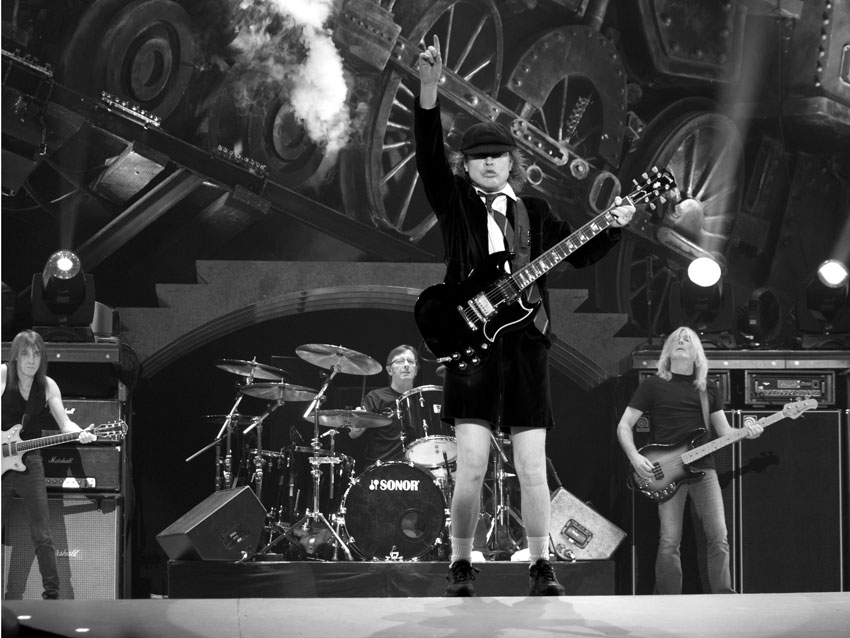
They're rock 'n' roll through and through
As cliched as it sounds, cut AC/DC and they’d bleed rock 'n' roll. Angus explains: “The misunderstanding is that we’re a hard rock band or a heavy metal band. The truth is, we’ve only ever been a rock 'n' roll band. If you go back to the very beginning, when we were playing in local pubs, we used to play Chuck Berry covers.
"Every now and then we’d slip in one of our own songs to see if anyone would notice," he continues, "but we got away with it. So we just started putting in more of our own stuff and reducing the amount of covers. Soon we were playing clubs, theatres, then arenas and all of that. But the core was, and still is, rock 'n' roll.”
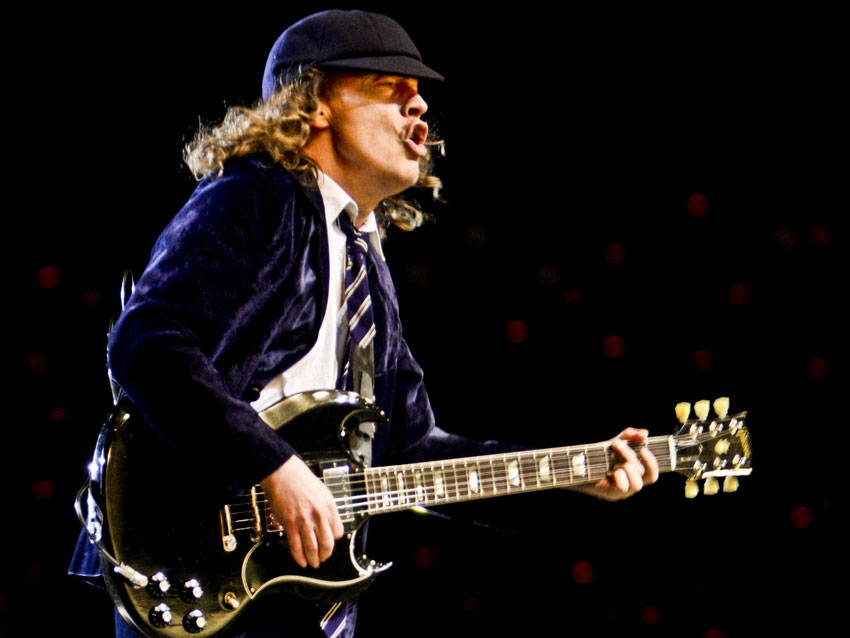
Their lead guitarist is the ultimate six-string showman
A guitar virtuoso covered head to toe in sweat, clad in an ill-fitting school boy and spinning around on his back while turning out a show-stopping solo - what’s not to love?
When it comes to real show-guitarmen (yes, we made that term up), Angus is the man. But this isn’t a case of style over substance, oh no. Angus has more than enough chops to back up his frenetic onstage persona. Sure he may be fast and loose with notes at times, but his playing fills us with such amazing energy that we can forgive him for his mid-concert strip teases (those boxers, anyone?).
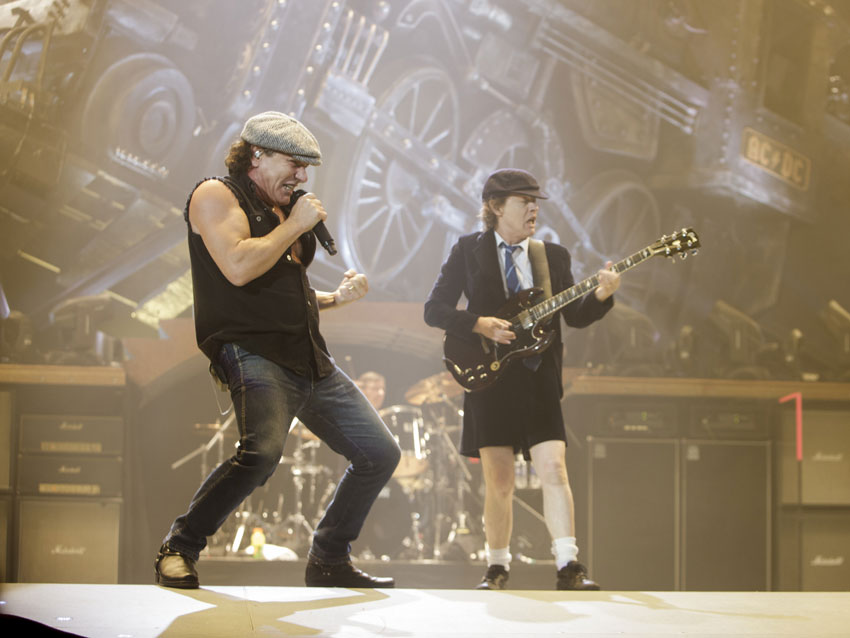
They rock hard, but with tons of melody
Yes they have waves of killer riffs, but Angus and Mal aren’t ones for simply beating you into submission. No, there’s a whole lotta melody in DC’s sound.
“There is always a melody to our songs,” agrees Angus. “And if it ever sounds a bit too smooth, we rough it up! We do work on our songs - we don’t just turn up at the studio and go, ‘Here’s a few riffs, let’s make an album’.”
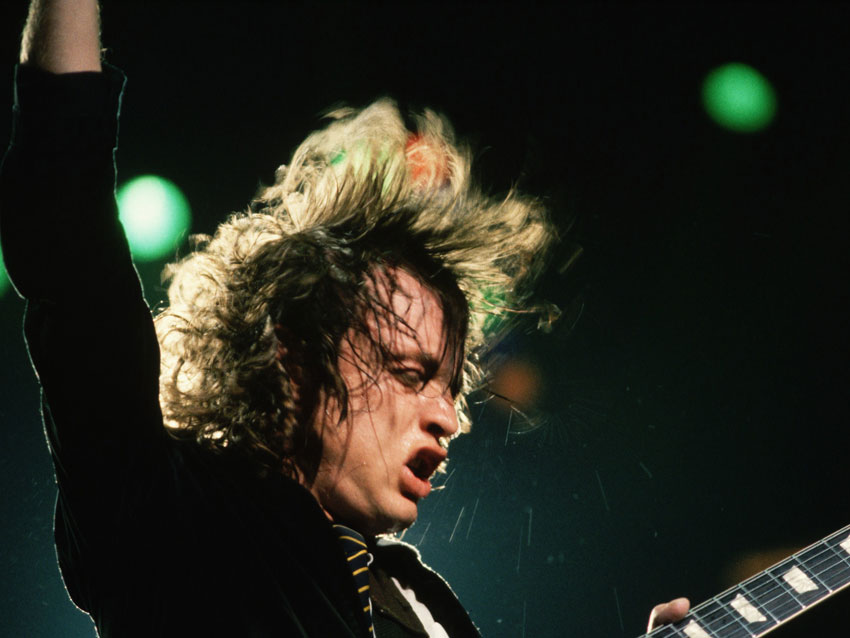
They are Monsters of Rock
AC/DC are the undisputed Monsters of Rock. Having headlined the Donington festival three times (plus their 2010 Download bill-topping appearance), the band’s 1991 performance is one of the greatest headliner shows of all time; referenced constantly by modern bands talking about that moment they knew they also wanted to rock for a living.
Packed wall-to-wall with iconic tunes (Back In Black, Highway To Hell, You Shook Me All Night Long, and on it went), their extended set was simply awe-inspiring, jaw-dropping, made-you-wanna-dance-all-night amazing. Annndd it was all anchored by the sweat drenched dude in the schoolboy outfit. Take that, erm, Take That with your giant disco balls!
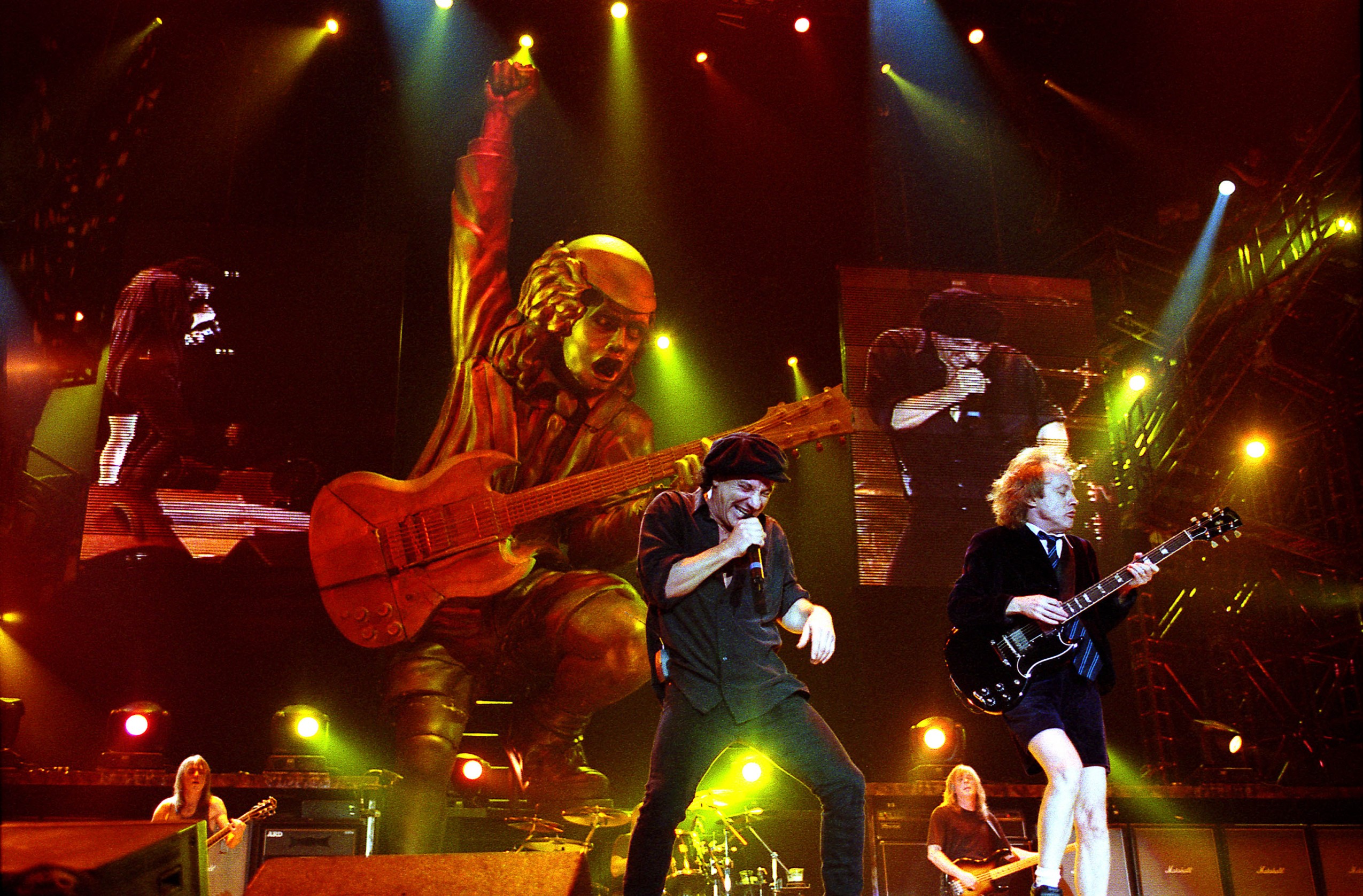
Thunderstruck
It may have come almost 20 years into their career, but Thunderstrck is a sure-fire sign of a band with plenty of life left in them.
Angus is famed for his blistering blues edged solos and powerchord riffage. The main riff in Thunderstruck, however, has a distinct classical flavour, slightly reminiscent of the outro to Van Halen’s Eruption. The main difference is that Angus picks every note, which is quite an undertaking at this tempo!
The main intro/verse riff is based around an open second string B note that he plays between alternate fretted notes. This takes lots of dexterity and co-ordination between the two hands. Nice one, Ang!
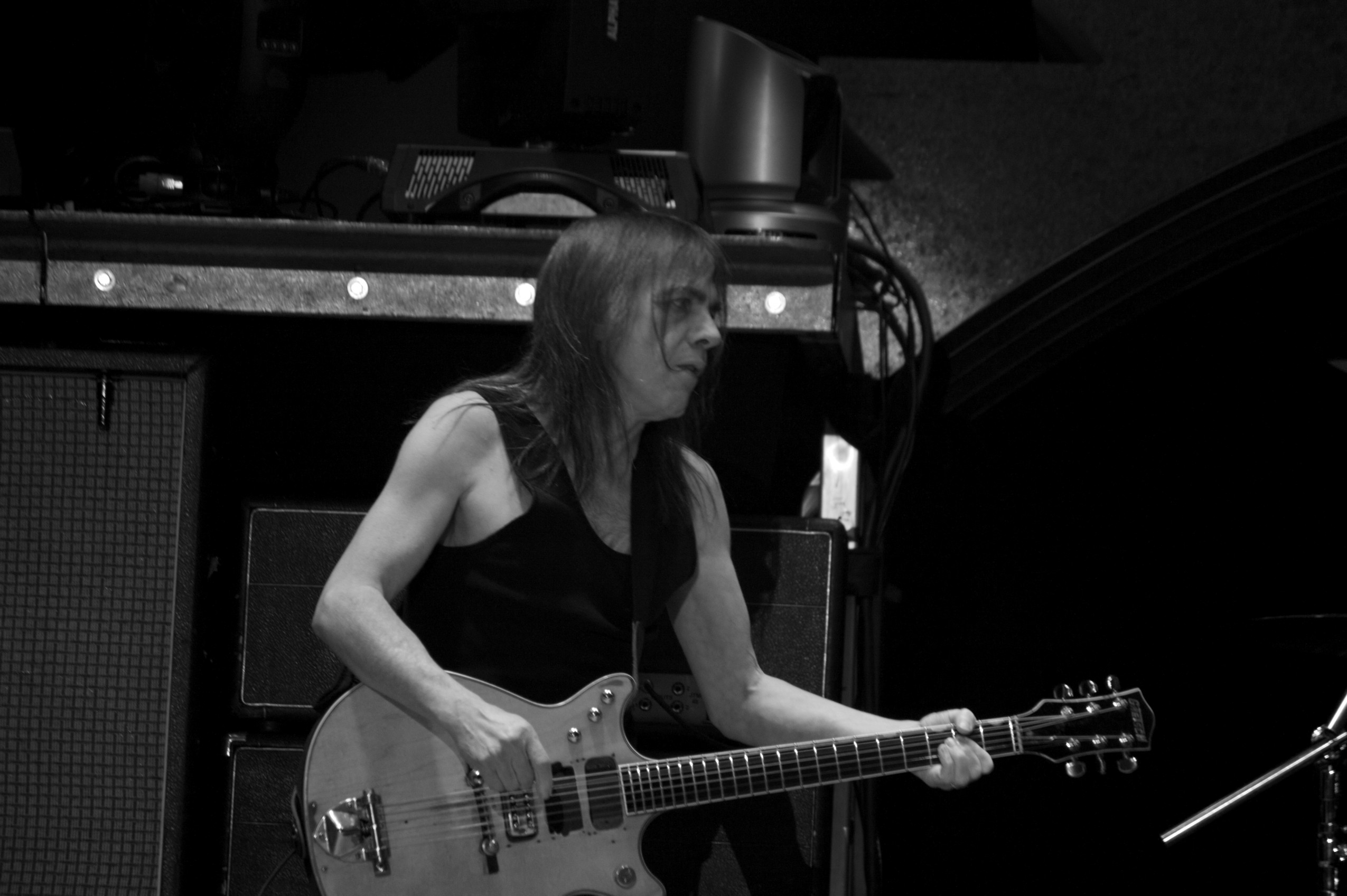
They know how to move a stadium
We’ve seen Angus, Mal and the gang play at some of the biggest stadiums in the world and the energy is always the same: these Antipodean dudes bring the thunder and fury to any venue they play.
While you may never again be at a DC gig with anything less than thousands of rock comrades separating you from a shower of Angus and Malcolm’s glistening, sticky brow sweat, the band’s electrifying arena performances still make you feel as though you're stomping and head-banging your way through a private gig in your own dog shit-infested backyard.
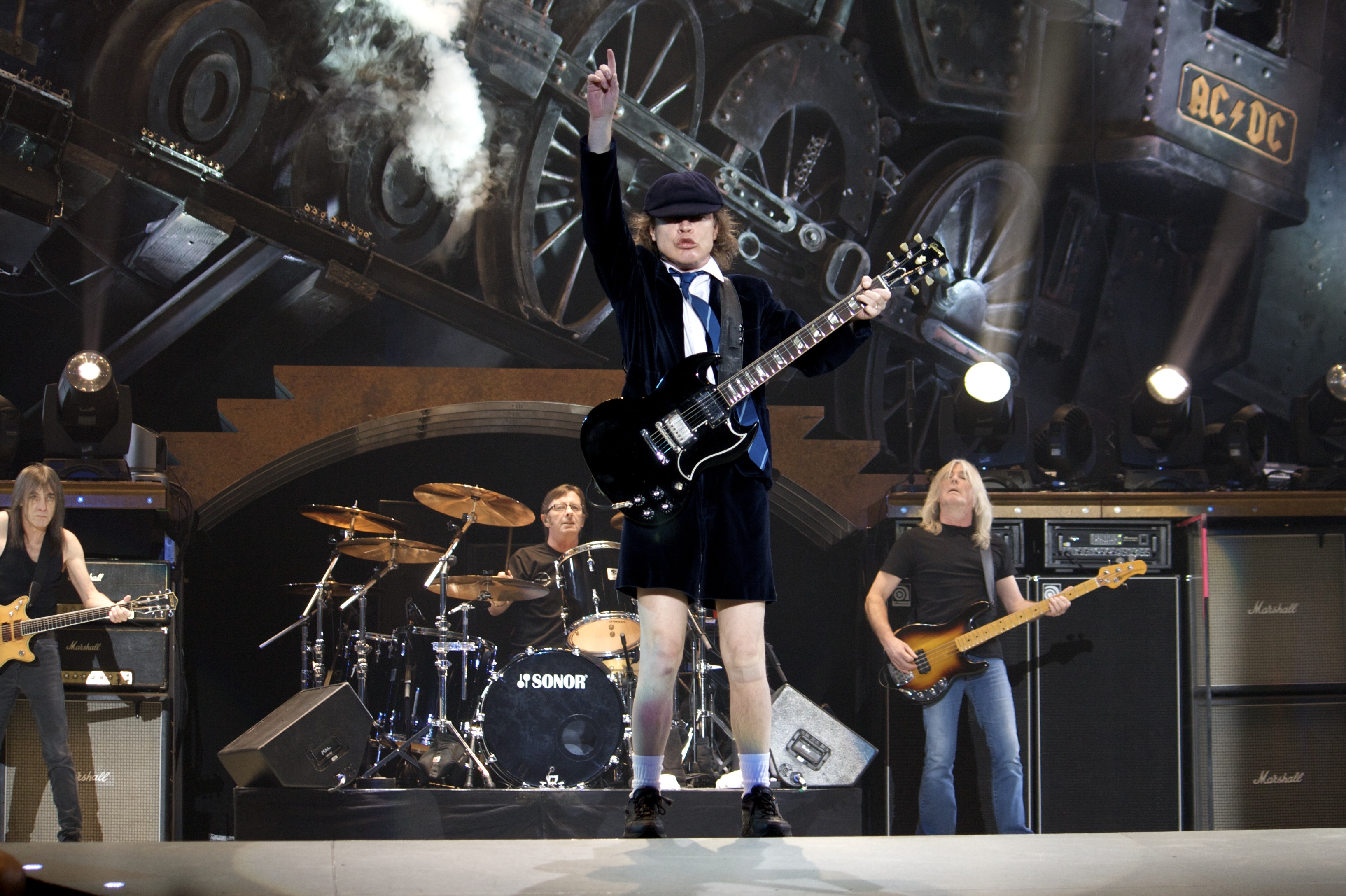
They've never compromised
Five decades dealing with managers, labels and money men has changed the sound of many a band, but not Angus and Malcolm.
Nope, their guitar tones are as raucous today as they were back when the band formed in 1973. Angus says, “We’ve heard so many different opinions over the years... We’ve had people from the label saying, ‘I’m not sure there’s a single on the album’, and we’ve had people suggesting we go for a more commercial approach. But we never listened. When the world was playing punk rock, we were a rock 'n' roll band; when the world was playing disco, we were still a rock 'n' roll band.”
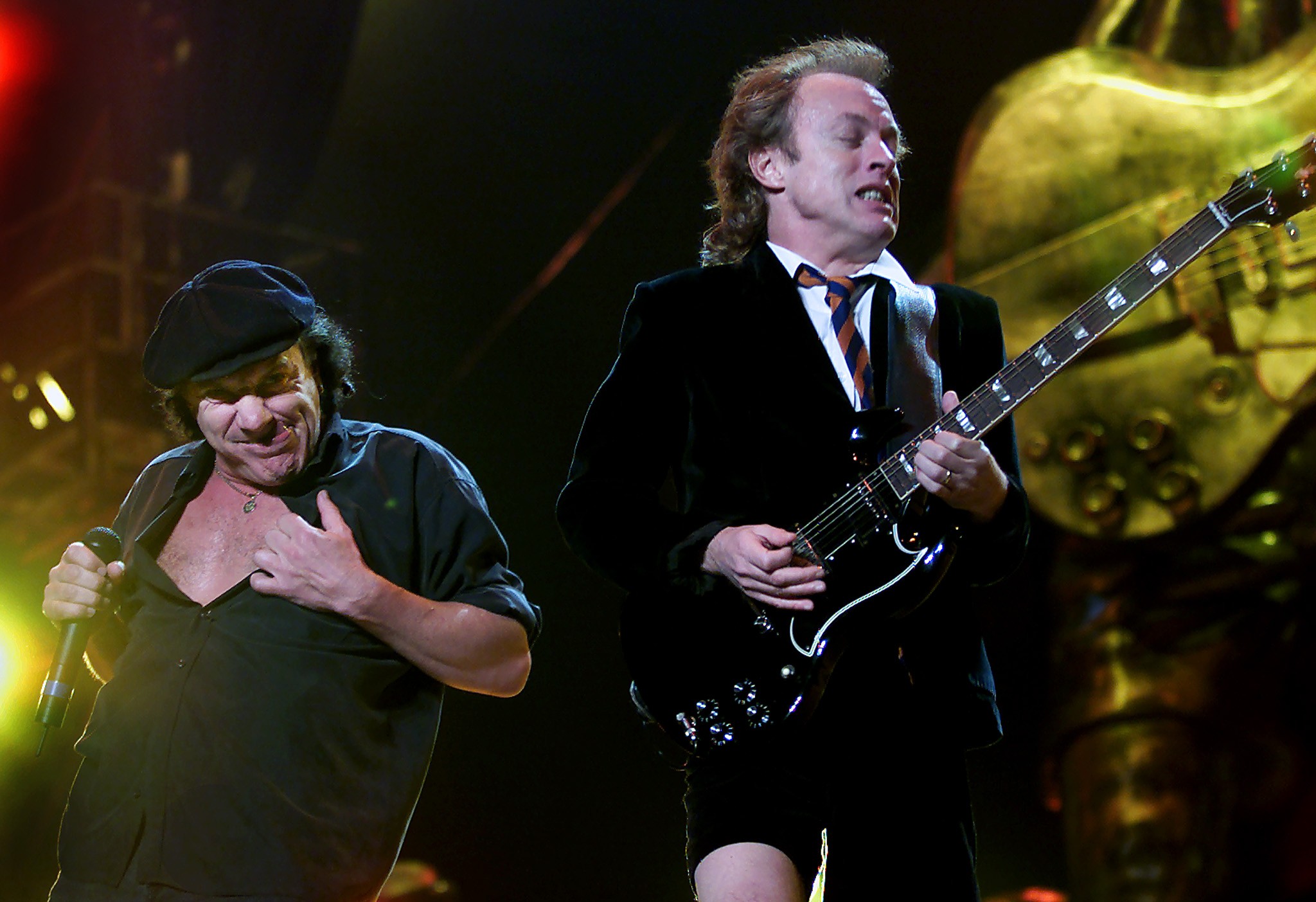
They're forever young at heart
Angus may be edging close to bus pass age, but no number of rings on his tree trunk can cool the fiery breath of rock in his belly. Instead of curling up with a good book (well, he might do that also), he writes riffs that teenagers can get their teeth into.
“I have this theory: when we started writing songs we were 17 years old. When you’re 17, you write songs for other 17 year olds. We stopped growing musically when we were 17. We still write songs for 17 year olds. We’ve always been quite clear about how we want our songs to sound. If we can imagine our songs being played at a party and getting people tapping their feet, then it’s in.”
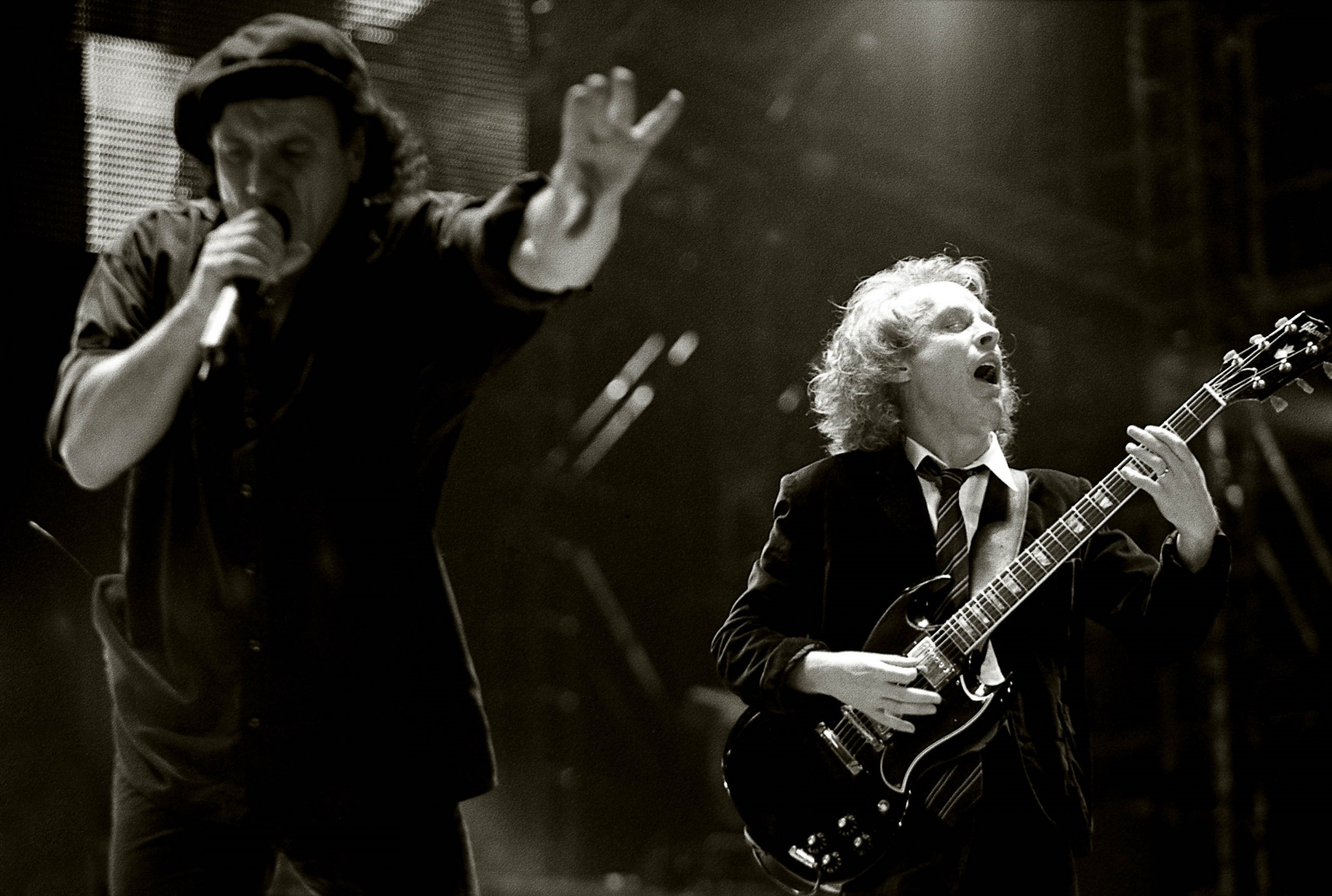
Angus has an iconic setup
Few guitarists, with the obvious exception of Hendrix and his white Fender Stratocaster, are so famously associated with a particular model of electric guitar as Angus Young. In case you were wondering, his original ’68 SG and back up 1964 model are both strung with Ernie Ball 10-48 strings.
Want more? Ok. For amplification, Angus fires up an arsenal of vintage Marshall ‘Plexi’ models. His main squeeze is a JTM45, a 50-watt head, but apparently he often uses a 100-watt Plexi head for recording riffs in the studio. His speaker cabinets are Marshall 4x12 1982B and 1960B models loaded with Celestion speakers.
Angus' taste in speakers has changed over the years (and they may even have changed again since writing this). Originally relying on a Celestion G12H 30 watt in the early days of AC/ DC, he now uses Celestion Vintage 30s and G12M 25 watt speakers. For the most ardent of geeks among you, Angus spanks his plank with Fender extra heavy picks.
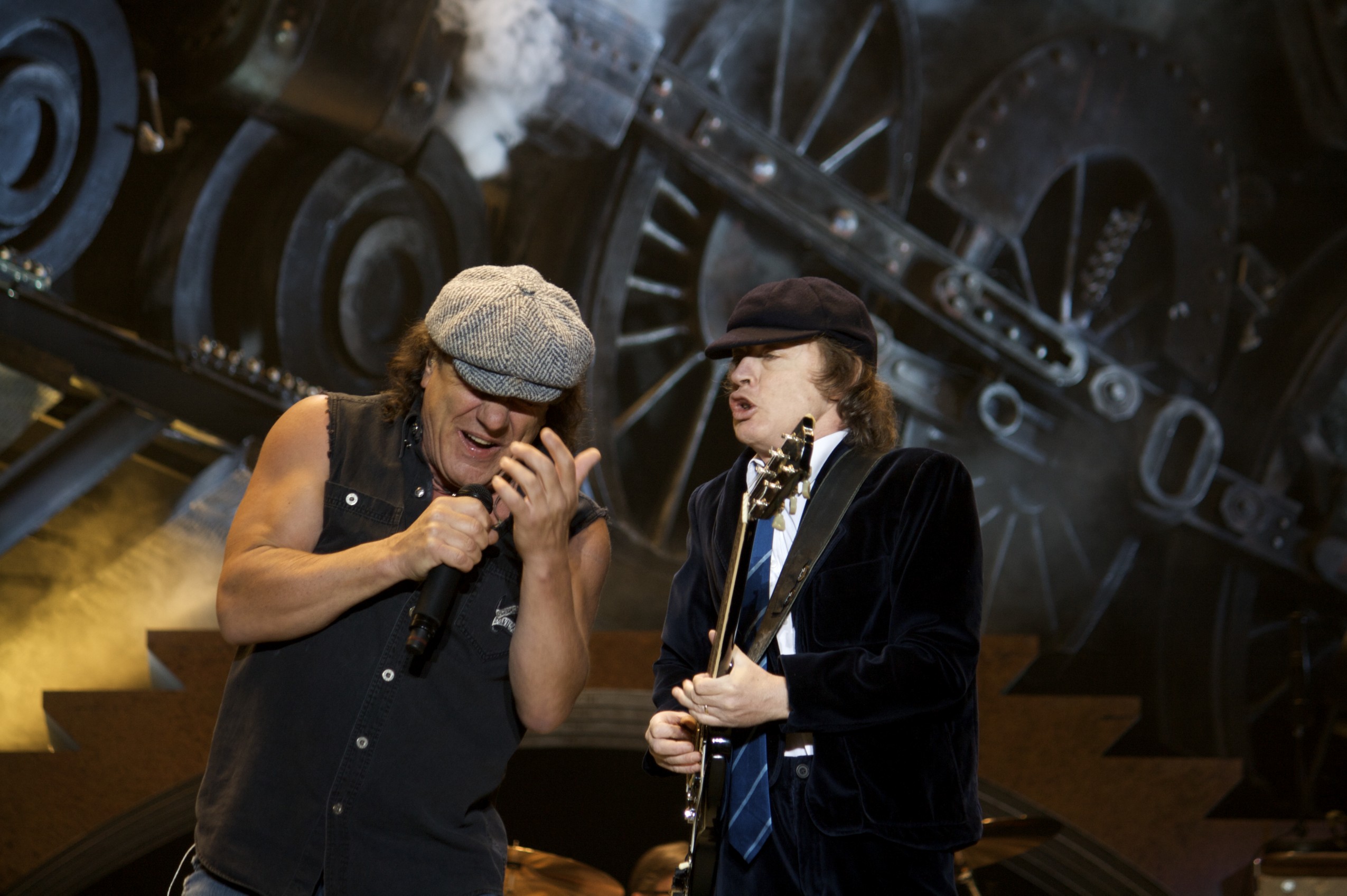
They make albums. Not singles.
Today you can find AC/DC’s massive back catalogue on iTunes, but they held out on making their tracks available for individual download. Angus didn’t want you to just hear the iconic Back in Black riff.
No, he wanted you to take in the spine-tingling opening notes to Hells Bells, the high voltage riff of Shoot To Thrill, the… Well, you get the picture. “We don’t make singles, we make albums," Angus said back in 2008. "iTunes refuses to allow us to sell our albums as complete works, so we’re not up there. Way back in the 70s, we drew some figures on the back of an envelope for our record company. We showed them how much they would earn from us if we sold one million singles and then we showed them how much they would earn if we sold one million albums. We honestly believe that the songs on our albums belong together. They represent us at a certain time and place in our career. They are not a bunch of individual downloads...
“The funny thing is that since iTunes came into existence, we’ve actually increased our back catalogue sales without being on the site. We were sternly warned by our management team and our record label that the complete opposite would be the case!”